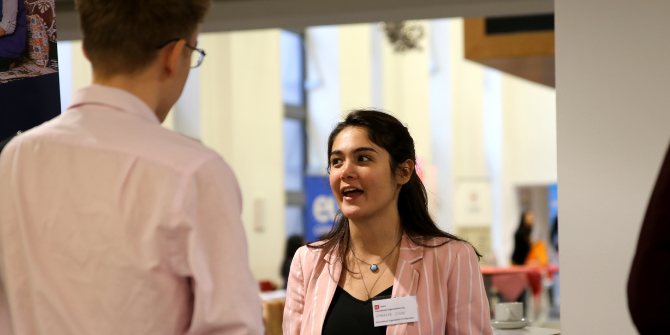In this blog we look at the international development consulting sector, including the types of roles you might find and possible entry routes.
But first, let’s start with a couple of questions – it is really, really useful to reflect on: why do you want to work in this area? What exactly do you want to do in it?
Don’t worry if you don’t know the answers right now but keep them in mind as you read on and begin to explore working in the sector. International development consulting is a diverse area in terms of the organisations and work delivered. There is no escaping the fact it can be highly competitive, so knowing your true motivations early on will help a lot as you begin to forge a path. Now is the time to do that research, think about your existing skills and those you might need to develop.
International Development Consulting, an overview…
In summary, international development consulting organisations work in the field of international development, where they advise and support governments, international agencies, non-profits, or corporations on specific projects.
There are a mix of specialist consultancies, such as IMC and Dalberg, and large management consultancies such as PwC which operate in this area. Devex is a great resource for finding out more about the key players and here you will find a list of development consulting firms worldwide.
Breaking this down a little further, development consultancies bid for work from government aid agencies. Previously this was the Department for International Development (DFID) in the UK, which has now been replaced by the Foreign, Commonwealth & Development Office. This is a recent change, so we are yet to see if or how this impacts work with development consulting firms. US Aid and EuropeAid are other examples. Development consultancies also bid for work from international organisations such as the World Bank. Charities, NGOs and foundations also work closely with development consultancy firms to deliver their projects in the field, as do multinational firms such as Vodafone, Unilever and Mars.
So the international development consulting industry is composed of for-profit firms, non-profits, hybrid models, and various multinational institutions. You may find these longer lists of development aid agencies and charitable foundations helpful.
A closer look at the work involved
Common areas of work include: Project management, Funding, Accounting and finance, Logistics, Procurement, HR and recruitment, Communications and Law.
Areas of specialism include: Environment, Climate and Sustainability, Knowledge management, Disaster risk reduction, Economics and finance, Education, Engineering, Inclusive growth, Monitoring & evaluation, Social development, Trade & Investment, Governance & policy and Health.
Work is project-based and you will often run multiple projects simultaneously. You may find that those working in the sector have a mix of public and private sector experience. And of course, travel can be very likely for many roles.
From speaking with people within the sector we know that the following are just some of the key attributes and skills that catches an employer’s attention: strong teamwork & communication, business acumen, creativity, resourcefulness, persistence and resilience, sensitivity to the issues you may be working to support. Often, certain technical skills will be required (or the willingness to develop them) as well as language skills.
Where to find the right experience
Explore the various careers events, public lecture series and departmental activity coming up at LSE. Undertaking volunteering and internships with NGOs can help build relevant knowledge and skills (this can be helpful option in COVID-19 times, where you can still potentially gain experience and knowledge in a head office setting, for example). Fieldwork or overseas experience can be incredibly valuable in helping you understand the context and issues, which could be something to explore in the future. Consider the various players in the field which can offer a way to gain experience or to develop a specific functional skill or expertise, before moving into a development consulting firm.
Devex and Reliefweb can be a helpful resource for helping to identify the names of the companies that you would like to work for so that you can search for them on LinkedIn or follow them on Twitter. LSE Careers’ sector resources could also be worth a look for more detailed information.
Keeping up to date
Do your research into the various development consulting firms. Check the websites of those you are interested in. Follow latest recruitment news on LinkedIn and Twitter – we know for example Adam Smith have used Twitter in the past to share recruitment news. Timelines vary for each firm, some have a graduate scheme, others recruit at different times of the year. It can also be worth making speculative applications.
Watch the news and stay up to date with the political situation, what major donors are doing, what are the key issues affecting the sector are and so on. At a recent alumni event covering International Development more generally, we heard our guests discussing the effects of COVID-19 and potentially see more partnership, entrepreneurship and perhaps also more focus on local communities.
Finally…
As we mentioned above, considering why you are interested in the sector and what you would like to do is much more valuable than generic interest in development. Understanding the different jobs and where you fit in will be crucial. Reflect on your skills and experience. If you have previous relevant experience, consider which route is right for you too.
Reach out to people working in the sector too, like LSE alumni – most people want to help!






Thank you so much for sharing this great post. This is extremely valuable information.